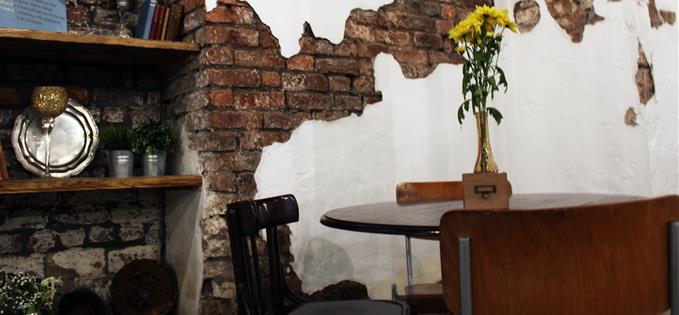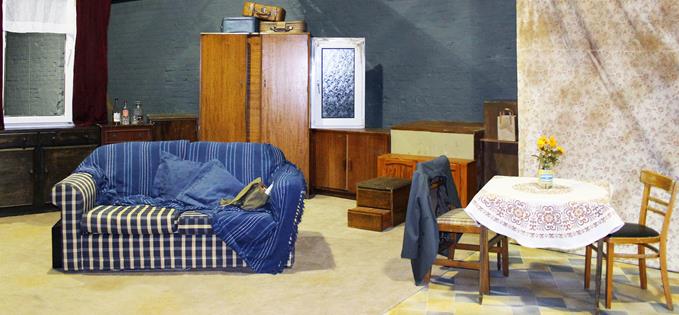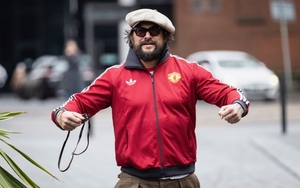IT’S AN old cliché but Hope Mill Theatre really is a hidden gem. Nestled within one of Ancoats’ myriad red brick mills, down a modest residential road, the dramatic space belies its surroundings...and simultaneously fits right in. Contemporary lights dangle from impossibly high ceilings, antique treasures occupy secret alcoves and polished gold candelabra illuminate thick crimson curtains reminiscent of Phantom of the Opera. Even the walls are defiantly full of character, peeling whitewashed stucco revealing the original ruddy brick. It’s a seductive blend of modern artistry and industrial heritage; much like the rest of the former textile factory, now home to 120 creatives and 81 studios.
As a Venetian mask winks at me from the shadows, anything seems possible
Hope Mill Theatre is the Grade II listed building’s latest addition, the brainchild of Joseph Houston and William Whelton. Trained in musical theatre, the gregarious couple were inspired by esteemed ‘off West End’ venues like Southwark Playhouse and The Union, which - whilst dominating London theatre - are here a rarer breed, despite a progressive arts community. Vibrant small-scale locales are offset by heavyweights like HOME and The Royal Exchange... yet there is very little middle ground. With their 120-seat venue, also home to the Engine Room Cafe and Bar, they aim to close the gap and provide Manchester with fresh theatrical experiences.
 Auction spoils furnish the Engine Room Cafe and Bar
Auction spoils furnish the Engine Room Cafe and BarSo what exactly is ‘off West End’? “It’s anything that isn’t commercial big-budget theatre,” says Joseph in his melodious Glaswegian accent. “It’s a great compromise because, whilst you may not have the enormous sets and special effects of larger venues, there is much more capacity for experimentation and trying something new.
West End productions have to be very regimented, the formula rarely changes; such a lot of money is invested that it’s too risky to go against the grain. Smaller shows don’t carry that danger, there is more freedom to adapt and change from season to season”.
Does that mean fringe theatre is a more ‘high brow’ enterprise then? “Not at all. High calibre doesn’t necessary mean high brow. Some works might be more obscure but many have mainstream appeal, just like the West End classics. What you can expect is a fuller experience, being immersed in a play rather than craning your neck to see it over thousands of heads”.
 The intimate set of Orphans
The intimate set of OrphansThe couple also anticipate Hope Mill Theatre being a springboard for new talent, through both commissioning new works - beginning with a musical later this year, in collaboration with Aria Entertainment - and hiring out the multipurpose space to local companies and events. Play With Fire will stage their production of Orphans this month, ahead of Manchester Drama Society’s Lion Man in March and Box of Tricks company thereafter. Events like film screenings and live acoustic nights are also set to be a calendar staple. The theatre’s atmospheric interior and canal-side location (not to mention onsite parking) have even made it an unexpected location for weddings.
So will Hope Mill play a part in inspiring the next generation of Andrew Lloyd Webbers? It’s a tall order yet, as a Venetian mask winks at me from the shadows, anything seems possible. There’s no business like show business after all.
Orphans runs from 13-16 and 20-23 January. The Engine Room Cafe is open 10am-6pm weekdays, 10am-3pm weekdays and also offers homemade pizza when booked with your play in advance.
More info at hopemilltheatre.co.uk














